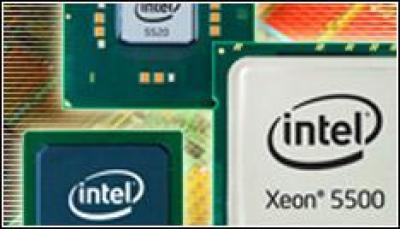Intel Resumes Chipset Shipments For Some Systems

Intel has resumed shipping chipsets that contain a design flaw, but only for PC configurations that aren’t affected
A week after announcing a design flaw in a chipset tied to its “Sandy Bridge” processor platform, Intel is resuming shipments of the chipset to PC makers whose PC configurations are not affected by the problem.
In a statement released on 7 February, Intel officials said their decision comes after a week of meeting with OEMs and following specific requests from some PC makers. Intel did not specify which systems makers made the request.
Design flaw
“Only computer makers who have committed to shipping the Intel 6 Series Chipset in PC system configurations that are not impacted by the design issue will be receiving these shipments,” Intel officials said in a statement.
On 31 January, Intel executives announced that they had discovered a design flaw in the chipset the week before, and had subsequently found a fix for the problem and were beginning to manufacture new chipsets with the problem corrected. They also had stopped shipments of the problem chipsets, about 8 million of which had been shipped and some of which had been put into systems that had been bought by end-users.
As part of the update announced on 7 February, Intel executives also said they have started manufacturing the new chipsets, which now should start shipping in mid-February. Last week, they had said shipments would start in late February.
Intel executives said they had made the decision to stop shipments of the flawed chipset on 30 January, and began working with PC makers the next day. They estimated that the issue could cost Intel $1 billion (£620m) in lost revenue and related expenses.
The design flaw affected four of six SATA (Serial ATA) ports in the chipset, which over time could cause problems in the performance of such PC peripherals as the SATA hard-disk drive or optical drive. Endpoint Technology Associates analyst Roger Kay noted that the problem affected the four 3G bps SATA ports, and not the two 6G bps ports that are most often used by consumers, so many end users will not have any issues down the road.
Intel executives estimated that the problem could affect 5 to 15 percent of the chipsets made, and stressed that the issue was with the chipset and not the Sandy Bridge processors. The second-generation core processors were rolled out at the Consumer Electronics Show in early January, and key among their features is discrete-level graphics capabilities integrated with the CPU onto a single piece of silicon.
After Intel’s 31 January announcement, PC makers began working with the chip giant to figure out how to address the problem. A host of OEMs, including Hewlett-Packard, Dell, Acer and Samsung Electronics, said they were offering customers who had bought systems with the flawed chipset the chance to return the PCs for repair or replacement.
AMD boost
“Acer has already stopped shipping the products impacted by this issue and has instituted a programme to assist customers who purchased affected units,” a company spokesperson said in a statement released on 4 February. “At the same time, Acer is working in close collaboration with Intel to coordinate the next steps.”
Analysts said that in the long term, the chipset problem would have little impact on Intel beyond the $1bn financial hit but that the PC makers would bear the brunt of dealing with customers. They also said the problem could give Intel rival AMD a brief boost in the tight competition around systems on a chip.
